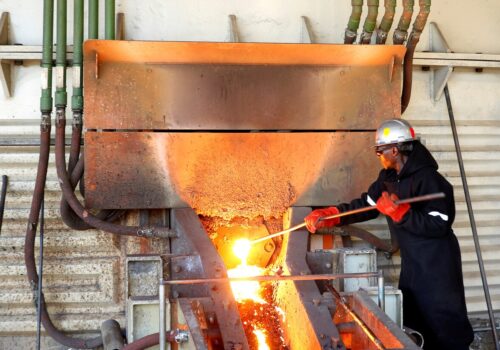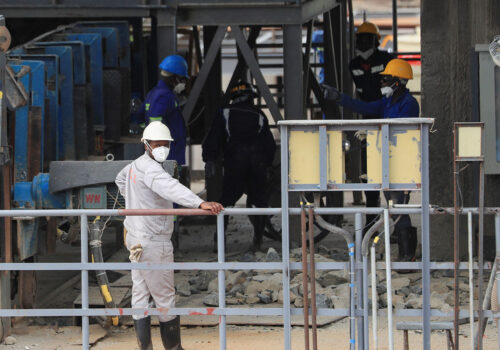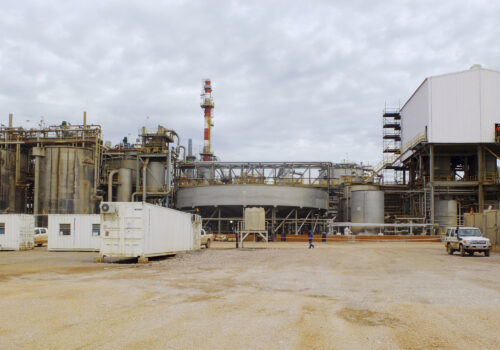What African producers of critical minerals can learn from Indonesia’s experience
This report was updated on January 31, 2025
With its success in nickel production, Indonesia has become a model for those seeking to harness “resource nationalism” for domestic benefit. Substantial foreign investment, particularly from China, has been a key variable for Indonesia to become a globally relevant industrial center for nickel processing. While there are insightful lessons that policymakers from mineral-resource-rich African countries can learn from Indonesia, there must be caution in implementing some of Indonesia’s policies, especially export bans as they have had mixed results and depend heavily on external factors.
Africa holds a third of the world’s mineral reserves, including critical minerals essential to the green energy transition. Yet, the continent remains underexplored, underdeveloped, and underfunded, receiving just 8–10% of global exploration and investment. Global demand for minerals like copper, nickel, cobalt, and lithium is expected to generate $16 trillion over the next 25 years, with sub-Saharan Africa potentially capturing $2 trillion. However, to realize this potential, Africa must shift from raw extraction to value-added processing. Developing local processing industries would boost economic diversification, job creation, tax revenues, and technological advancements while reducing dependency on raw-material exports.
To achieve this, African governments must prioritize coherent, forward-looking policies that emphasize value creation. Commissioning technoeconomic studies to identify key supply chain opportunities will help guide investments. Establishing Special Economic Zones for critical minerals can attract international investors and foster industrial hubs. Leveraging the African Continental Free Trade Area to create robust commodity markets would position Africa as a competitive player. Additionally, streamlining regulatory processes, supporting carbon-free power projects, and advancing infrastructure investments through global initiatives such as the US PGI and EU Global Gateway can facilitate critical mineral processing and transport networks.
Export bans, though well-intentioned, often backfire. Historically, they have reduced exports, weakened global trade positions, and worsened infrastructure challenges in energy, transportation, and logistics. Without effective governance and political stability, such policies risk stalling economic growth rather than stimulating it.
By focusing on industrial infrastructure, value-added processing, and policies that promote long-term diversification, African countries can move beyond the limitations of raw extraction. With transparent governance and strategic investments, the continent can transform its mineral wealth into a driver of sustainable economic development.
This report is the second in a series on the critical minerals sector in Africa, and is part of the Africa Center’s Critical Mineral Task Force.
Related content
Presented by

The Africa Center works to promote dynamic geopolitical partnerships with African states and to redirect US and European policy priorities toward strengthening security and bolstering economic growth and prosperity on the continent.
In partnership with

Image: Workers monitor the nickel melting process at a nickel smelter of PT Vale Tbk in Sorowako, South Sulawesi province, Indonesia, March 30, 2023. REUTERS/Ajeng Dinar Ulfiana


